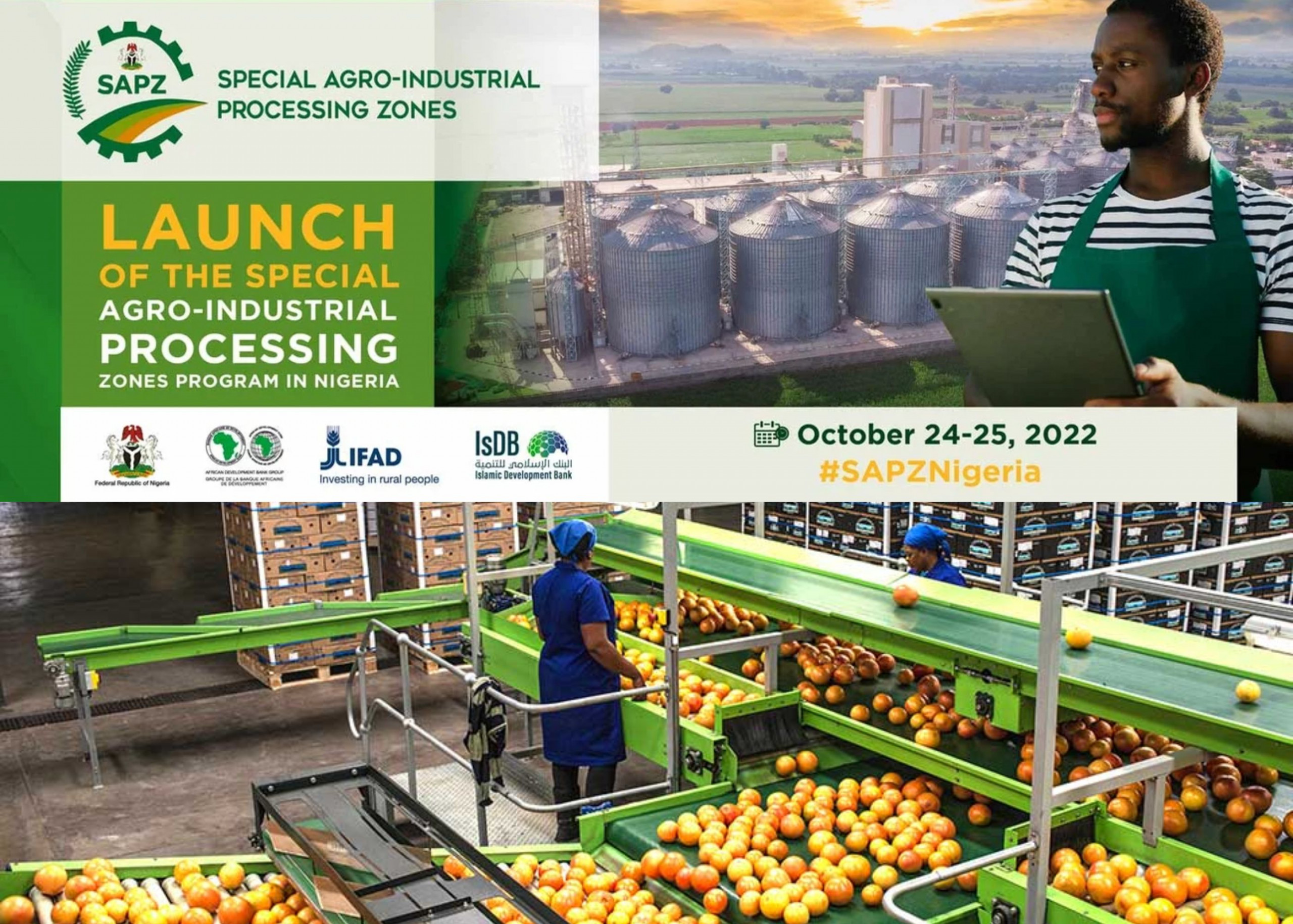News in brief:
– Nigeria’s agro-processing zone programme aims to attract $1 billion in agricultural investments and create 500,000 jobs by 2027.
– It will reduce post-harvest losses, train farmers in climate-smart practices, and boost value addition.
Nigeria’s Federal Government has set ambitious goals to transform its agricultural sector through the Special Agro-Industrial Processing Zones (SAPZ) Programme. The administration aims to attract $1 billion in private agricultural investments and create 500,000 jobs by 2027.
The SAPZ program and funding breakdown
The SAPZ Programme is a joint initiative between the Nigerian government and international finance institutions like the African Development Bank (AfDB), the International Fund for Agricultural Development (IFAD), and the Islamic Development Bank (IsDB).
These institutions are contributing to the first phase (SAPZ-1), which is being implemented across seven states: Cross River, Imo, Ogun, Oyo, Kaduna, Kano, and Kwara. This phase is expected to generate $1 billion in investments and create job opportunities across Nigeria, boosting local agro-processing industries.
The total projected cost of SAPZ-1 is $538.05 million, with financing from various sources:
- AfDB: $160 million in loans
- IFAD: $100 million
- IsDB: $150 million
- Green Climate Fund: $60 million (through IFAD’s IGREENFIN)
- Nigerian Government: $18.05 million in cash and kind
Reducing post-harvest losses and improving infrastructure
To combat post-harvest losses, SAPZ will rehabilitate 190 feeder roads, enhancing access to farms. Additionally, 100,000 farmers will be trained in climate-smart agriculture—a method that helps farmers adapt to climate change while boosting productivity.
Despite securing funding, challenges such as bureaucratic delays and inefficient fund disbursement are slowing down progress. According to Prof. Banji Oyelaran, Senior Special Advisor to the AfDB President, human-related challenges pose the greatest obstacle to its success.
The SAPZ initiative has the potential to drastically boost Nigeria’s economy by turning agriculture into a profitable venture. Industries will focus on processing agricultural products like ginger and cocoa, adding value and increasing export opportunities. By creating agro-processing hubs, smallholder farmers can increase their incomes through better market access and higher-value products.
Dr. Kabir Yusuf, the National Programme Coordinator, emphasises that SAPZ will position agriculture as a business opportunity in Nigeria, beyond just a livelihood. Leaders from participating states, such as Oyo and Kaduna, are committed to transforming agriculture through value addition and export growth.



